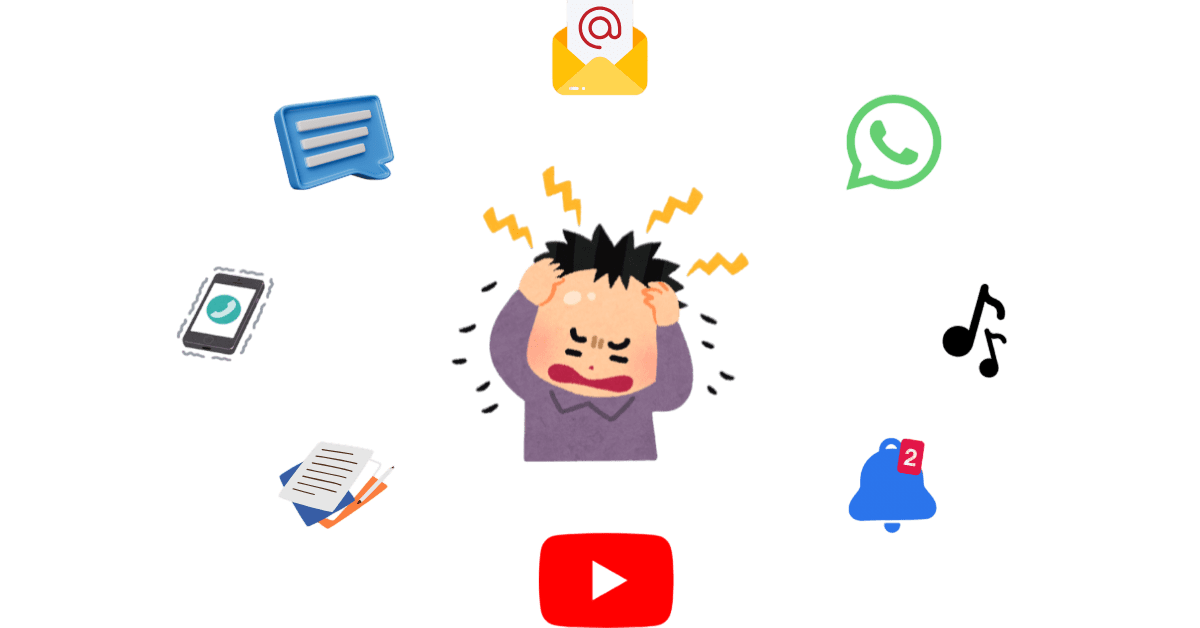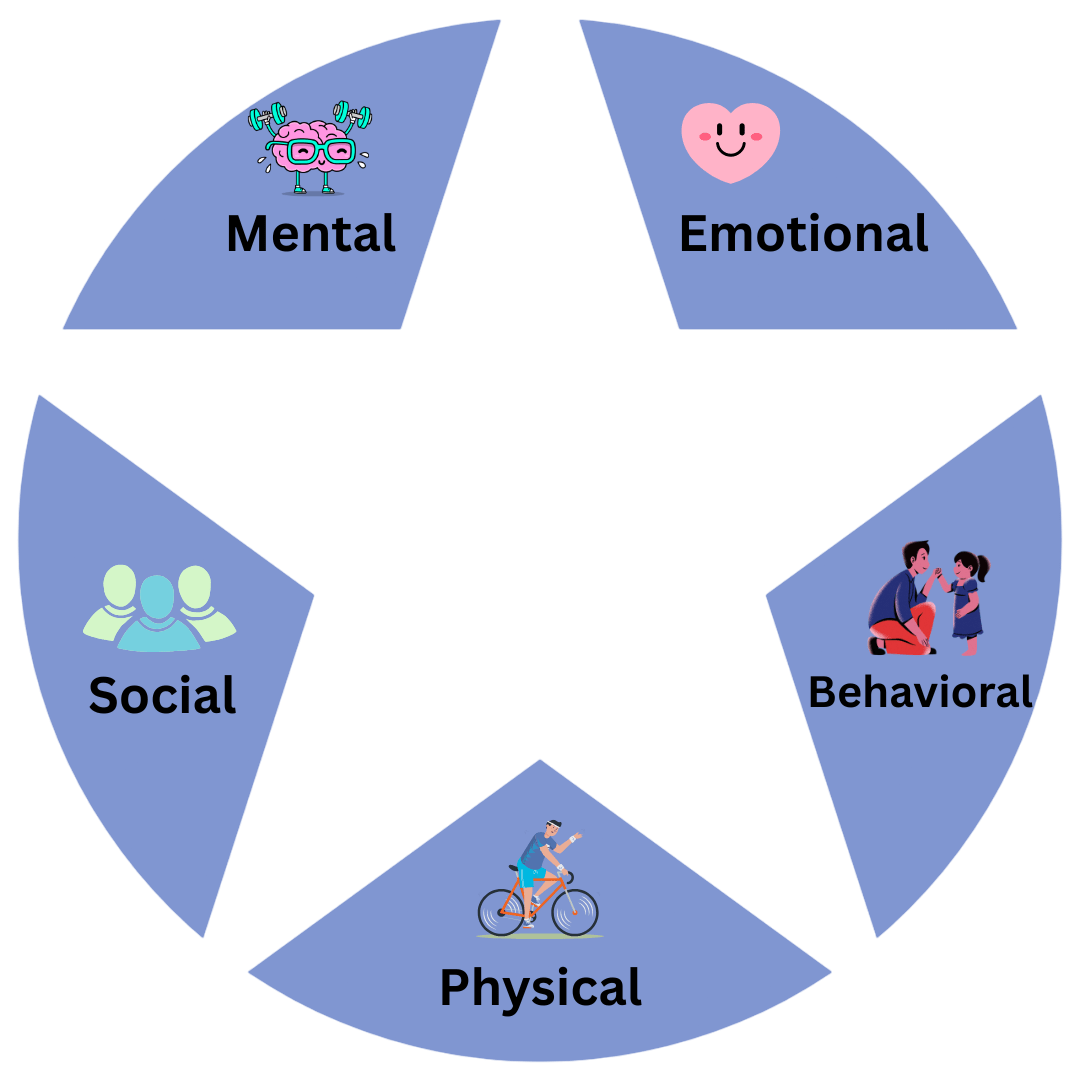Do you know that modern age people consume more information in a single day than our ancestors did in their entire lifetime?
Access to information has increased a lot over the past two decades, but our brain’s ability to process so much information in a short time hasn’t kept pace. We’re surrounded by countless sources of information on a daily basis; books, websites, social media, news, games, VR, emails and so on. But our brains still have a limited capacity of how much information it can process at a given time.
What is Information Overload?
Information overload occurs when our mind gets overwhelmed by the amount of data it receives for processing during a short timeframe.
Information overload reduces our brain’s capacity to function effectively, leading to poor decisions. Often people’s brains are so busy processing information that they are unable to make a decision. This situation is known as analysis paralysis. If this situation persists, burnout becomes a common result.
Information Overload as a Communication Barrier
When communicating with someone, if a person is bombarded with excessive information, messages or details, the mind gets overwhelmed. This leads to missing key points, decision-making based on misleading information, and confusion. This makes information overload a critical communication barrier.

For example, imagine your manager sending you a 10-page memo about a new project that you are in charge of. If the information is disorganized or you read this message while already taking in another source of information,
- You’ll get confused about where to start,
- You will miss key points,
- Your response time will be slower.
If later, your manager asks you anything about it, you will not remember it, even if you read it ten times.
Why is it a barrier?
- The main message gets lost in the noise.
- The receiver becomes stressed or disengaged due to the vast amount of information.
- Communication becomes ineffective because clarity is lost.
How does Information Overload happen?
Over the past decade, people have started consuming more and more information, mostly from online sources. The simplicity of creating and sharing information online has become so common that you can get any information, any time, right at your fingertips. This leads to people consuming a lot of information.
This excessive flow of information and choices can lead to decision fatigue, increased stress, reduced attention span and productivity.
Information overload doesn’t just happen once and leaves. It is the result of several overlapping factors that you are responsible for, and only you can manage them. The causes of this overload are:
1. Digital Clutter
Our devices are overflowing with information, and we rarely stop to clean them up.
- Hundreds of unread emails piling up in your inbox
- Social media feeds refreshing every second with new posts
- Push notifications for every like, comment, news alert, and app update
- Dozens of open tabs in your browser that you plan to “read later”
Digital clutter bombards your brain with constant micro-signals, demanding attention even when you’re trying to focus. Each ping, vibration, or red badge number triggers a tiny dose of anxiety (“What did I miss?“). Over time, this keeps your brain in a distracted, overstimulated state.
Example:
You sit down to finish an important report, but you’re interrupted by WhatsApp messages, Instagram DMs, and three email notifications — and you end up spending half an hour responding instead of working.
2. Work Pressure
Modern work culture is one of the biggest generators of information overload.
- Daily flood of reports, dashboards, and presentations to read and prepare
- Multiple meetings and Slack messages cutting into deep work time
- Constant expectation to stay updated with industry news and trends
- Real-time tracking of performance metrics creating urgency
Our brains are constantly switching between activities like reading, analyzing, planning, and producing under time constraints. This drains our mental energy faster and leaves little space for creative thinking or strategic planning.
Example:
Your workday starts with 40 unread emails, two meetings back-to-back, and a presentation due by EOD, forcing you to juggle tasks and absorb data faster than your brain can process it.
3. Personal Habits
Sometimes, we are our own biggest source of information overload.
- Multitasking: Watching a video, replying to texts, and half-listening to a podcast all at once.
- FOMO (Fear of Missing Out): Checking every new trend, tweet, or breaking news headline.
- Overconsumption of news: Reading multiple sources, doomscrolling, and refreshing updates even when nothing major has changed.
Your attention gets fragmented into tiny pieces. The more you consume, the less you retain, and the more anxious you feel about keeping up. Your brain never gets a chance to fully “digest” what you’ve learned, leaving your brain with partial information from each source.
Example:
You open your phone to quickly check the news but end up scrolling Twitter, reading multiple articles, and watching commentary videos, leaving you feeling overwhelmed and mentally tired without learning anything meaningful.
4. Technology & “Always Online” Culture
Our tools, while helpful, also trap us in a cycle of constant connectivity.
- AI tools and search engines that give you more results than you can process
- 24/7 connectivity: Work emails and chats accessible even after office hours
- Cloud collaboration tools: Files and updates ping you in real-time
- Smartphones: Your pocket becomes a non-stop notification machine
Due to technology, most of us need constant stimulation. Our mind never gets a chance to rest, not even during meals, commutes, or before bed.
Example:
You get a work-related Slack notification at 10 PM, check it “just for a minute,” and suddenly you’re back in work mode, mentally revisiting tasks you thought you had finished.
Symptoms of information overload
You can figure out if you’re constantly suffering from information overload through these symptoms:
Cognitive/Mental Symptoms
- Lack of Focus: If you consistently have trouble concentrating on one task due to having multiple tasks at hand without knowing the priority of each task.
- Forgetfulness: You keep forgetting important information about a topic or task.
- Decision Paralysis: You are not able to make decisions on time and you struggle when provided with multiple options to choose from, leading you to take no action at all in the end.
- Confusion: Sometimes you feel lost and confused, unable to prioritize any task.
- Decreased Productivity: You feel like you work a lot. You’re exhausted by the middle of the day, yet there is not much productive work to show. If you are a perfectionist, this can feel more intense.
Emotional Symptoms
- Stress or Anxiety: Getting overwhelmed by the amount of information you have in your hands.
- Irritability: Feeling frustrated when inputs keep on coming without break.
- Mental Exhaustion: Feeling drained, as if your mind has no capacity left.
Behavioral Symptoms
- Procrastination: Avoiding tasks because they feel too complex or overwhelming.
- Constant switching: Jumping between tabs, apps, or topics without finishing anything.
- Overconsumption: Compulsively checking news, social media, or updates despite feeling exhausted.
- Restlessness: You feel uneasy, agitated, and unable to relax. You cannot keep your mind free and always keep thinking about one thing or the other.
Physical Symptoms
- Headaches: Due to mental strain.
- Eye strain: From staring at screens too long.
- Sleep problems: Trouble falling asleep because your mind is still racing.

How to Prevent or Manage Information Overload
Let’s discuss a few things that could help you avoid further cognitive overload and keep your mind free:
1. Digital Boundaries
- Scan your phone and delete all the apps that provide you with no value.
- Block the notifications from apps that you don’t need.
- Avoid doomscrollingDoomscrolling is the compulsive act of endlessly scrolling through social media or news platforms, often consuming negative or distressing content.
This behavior overwhelms your brain with a constant stream of “interesting” yet mostly unrelated information from multiple sources, which can lead to emotional exhaustion, anxiety, and mental burnout.
Goal: Reduce the amount of time you spend online, including apps that require internet connections.
2. Scheduling
- Set a time for when you check your personal or work emails
- Read news from reliable sources only once a day, not during the whole day
- Prioritize your tasks of the day before you start your first task
- Mute the communication channels or groups of your social media (including WhatsApp, Slack, etc) that are not useful for work.
- Avoid multitasking (including listening to music or podcasts while working on something else)
3. Information Gathering
- Avoid consuming information from random people who have no credibility. They often exaggerate about things for views and followers, leaving you with incorrect knowledge.
- Don’t consume content from random websites without first confirming their expertise (it includes this website as well).
- Remember that on the internet, nearly half of the content is either fake, written by inexperienced people for money, or to spread false information deliberately for furthering their own agendas. Be careful with this misinformation and always fact-check.
4. Trend Chasing
- You don’t need to be an expert on everything.
- Stop following every trending topic or drama; it drains mental energy.
- It’s okay to “miss something.” Focusing on what matters is far more productive.
What can you do right now to avoid overconsumption of information?
- Before clicking a news headline, an article or a video, ask yourself: “Do I need to know or learn this?”.
- Unfollow everyone on social media whose content often leads to stress, anger, or FOMO (fear of missing out).
- Stop following people who have no achievements of their own. For example, there are people who claim to be business consultants but have never started or owned a business. They may have knowledge, but not experiences.
- Switch to real-world (offline) consumption of information. The less you depend on the internet, the better your mind works. Read physical books and magazines instead of online articles, meet your friends instead of “connecting” with random people on the internet, etc.
- Occasionally, do a digital detox where you don’t use any electronic device for a few hours or an entire day.
- After reading something, wait for a few minutes and reflect on what you just read instead of jumping to the next reading material.
- Avoid “scrolling” through content. Instead use the search option to look for what you need.
Takeaways
Information overload is not an inconvenience, but a dangerous aspect of your mental health. If left unchecked, it could negatively impact your entire life.
Information is valuable, but today, more than 60% of the information we consume on the internet is just pure junk with little to no positive value. Setting boundaries on what you consume helps you protect your mindset and actually use your mind to better your own life and improve your overall mental health.
Which of these symptoms do you notice in your own life? Start with one change today and see how your mental clarity improves.

